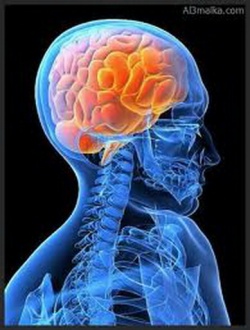Difference between revisions of "Yogacara and the Absolute"
| Line 1: | Line 1: | ||
[[File:102es.jpg|thumb|250px|]] | [[File:102es.jpg|thumb|250px|]] | ||
| − | Another {{Wiki|scholar}} sees a [[Buddhist]] {{Wiki|Absolute}} in [[Consciousness]]. [[Writing]] on the [[Yogacara]] school of [[Buddhism]], Dr. {{Wiki|A. K. Chatterjee}} remarks: "The {{Wiki|Absolute}} is a | + | Another {{Wiki|scholar}} sees a [[Buddhist]] {{Wiki|Absolute}} in [[Consciousness]]. [[Writing]] on the [[Yogacara]] school of [[Buddhism]], Dr. {{Wiki|A. K. Chatterjee}} remarks: "The {{Wiki|Absolute}} is a [[non-dual consciousness]]. The {{Wiki|duality}} of the {{Wiki|subject}} and {{Wiki|object}} does not pertain to it. It is said to be [[void]] ([[sunya]]), devoid of {{Wiki|duality}}; in itself it is perfectly real, in fact the only [[reality]] ...There is no [[consciousness]] of the [[Absolute]]; [[Consciousness]] is the {{Wiki|Absolute}}." |
| − | While this is a [[traditional]] [[Tibetan]] interpretation of [[Yogacara]] [[views]], it has been rejected by {{Wiki|modern}} {{Wiki|Western}} {{Wiki|scholarship}}, namely by {{Wiki|Kochumuttom}}, {{Wiki|Anacker}}, {{Wiki|Kalupahana}}, [[Dunne]], [[Lusthaus]], [[Powers]], and [[Wayman]]. {{Wiki|Scholar}} {{Wiki|Dan Lusthaus}} writes: "They | + | While this is a [[traditional]] [[Tibetan]] interpretation of [[Yogacara]] [[views]], it has been rejected by {{Wiki|modern}} {{Wiki|Western}} {{Wiki|scholarship}}, namely by {{Wiki|Kochumuttom}}, {{Wiki|Anacker}}, {{Wiki|Kalupahana}}, [[Dunne]], [[Lusthaus]], [[Powers]], and [[Wayman]]. {{Wiki|Scholar}} {{Wiki|Dan Lusthaus}} writes: "They [[Yogacarins]] did not focus on [[consciousness]] to assert it as [[ultimately real]] ([[Yogācāra]] claims [[consciousness]] is only {{Wiki|conventionally}} real since it arises from moment to moment due to fluctuating [[causes and conditions]]), but rather because it is the [[cause]] of the [[karmic]] problem they are seeking to eliminate." |
{{R}} | {{R}} | ||
[http://www.bahaistudies.net/asma/adibuddha.html www.bahaistudies.net] | [http://www.bahaistudies.net/asma/adibuddha.html www.bahaistudies.net] | ||
[[Category:Yogacara]] | [[Category:Yogacara]] | ||
[[Category:Absolute]] | [[Category:Absolute]] | ||
Revision as of 11:36, 13 September 2014
Another scholar sees a Buddhist Absolute in Consciousness. Writing on the Yogacara school of Buddhism, Dr. A. K. Chatterjee remarks: "The Absolute is a non-dual consciousness. The duality of the subject and object does not pertain to it. It is said to be void (sunya), devoid of duality; in itself it is perfectly real, in fact the only reality ...There is no consciousness of the Absolute; Consciousness is the Absolute."
While this is a traditional Tibetan interpretation of Yogacara views, it has been rejected by modern Western scholarship, namely by Kochumuttom, Anacker, Kalupahana, Dunne, Lusthaus, Powers, and Wayman. Scholar Dan Lusthaus writes: "They Yogacarins did not focus on consciousness to assert it as ultimately real (Yogācāra claims consciousness is only conventionally real since it arises from moment to moment due to fluctuating causes and conditions), but rather because it is the cause of the karmic problem they are seeking to eliminate."
